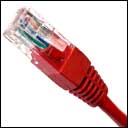Mr. Kessler hits the “nail on the head” by stating that competition will increase broadband penetration and solve net neutrality issues, but threatening regulation is not the way to achieve his goals. Only by introducing more service providers in each market will the objectives be achieved. The “beat them with a stick” approach does not work most of the time.
Regulatory uncertainty is spoiling the rollout of Steve Jobs’s latest inspirations.There’s a better way to spur broadband competition.
AT&T’s Picturephone, shown at the 1964 World’s Fair, was a huge flop. Apple’s new iPhone 4, announced this week, has a front-facing camera for video chats. It might succeed, except that AT&T isn’t providing enough bandwidth capacity.
First, the company won’t allow two-way video to work over its data network. Second, AT&T just made bandwidth-intensive video expensive by dropping iPhone and iPad’s $30 per month unlimited data plans and replacing them with a two-tiered plan of $15 a month for under 200 megabyte usage or $25 for two gigs. Not that I have a problem with AT&T charging me or the 2% of its customers who are heavy data users. I can always sign up with a competitor. Oh, wait. There are none. AT&T has an exclusive contract with Apple.






